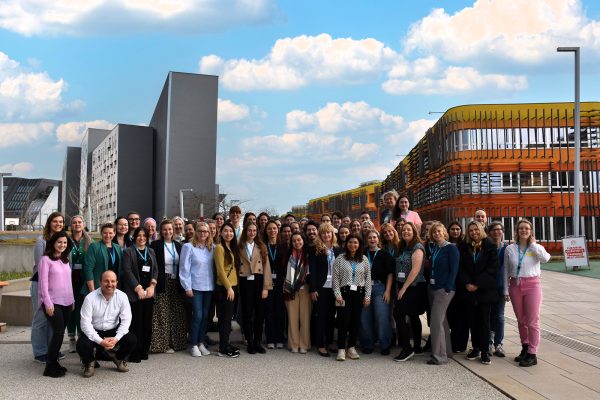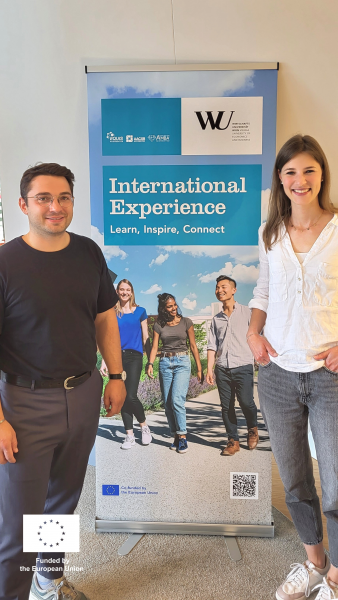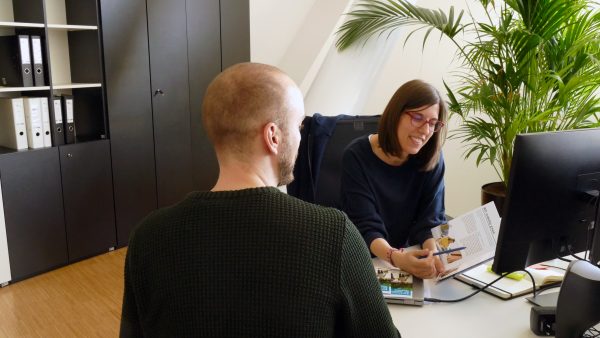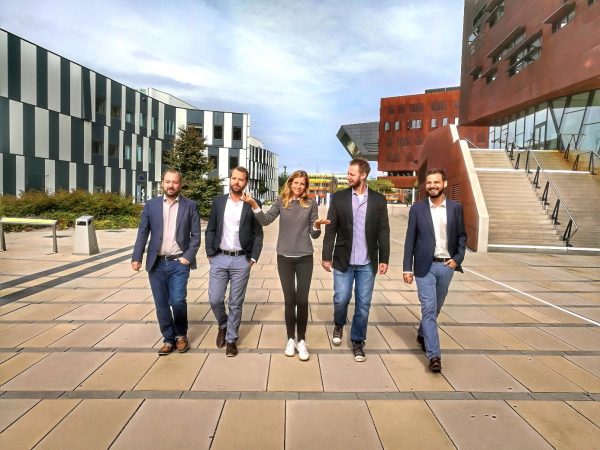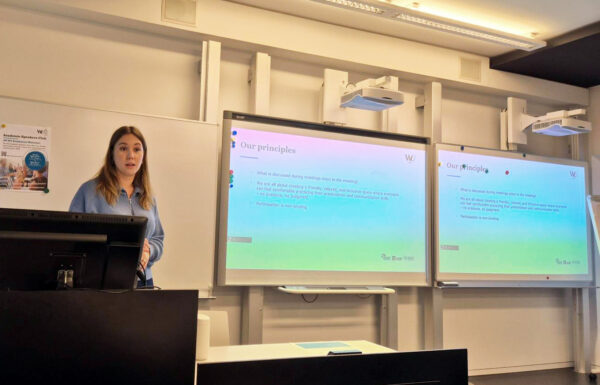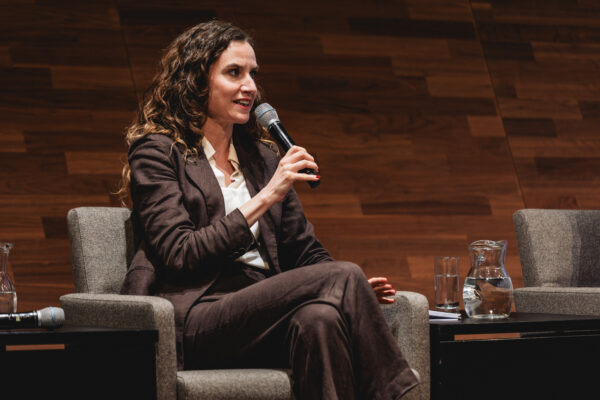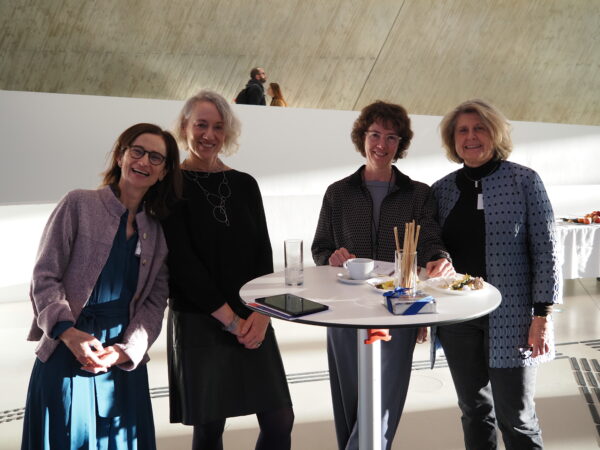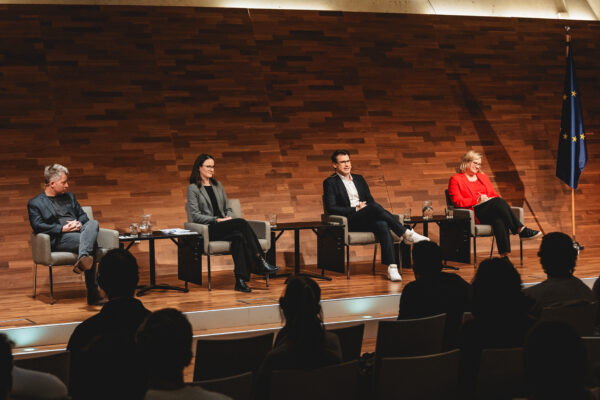Retirement at 75? A necessity or a social injustice?
On November 5, 2025, the Austrian pension system took center stage at “WU matters. WU talks.” Following a keynote speech by Martin Halla (WU), Hanno Lorenz (Agenda Austria) and Barbara Schuster (Momentum Institute) engaged in a panel discussion on the challenges and possible reforms ahead. The event was moderated by Karin Heitzmann.
The problems are well known but remain politically unresolved
In his keynote, WU Professor Martin Halla outlined the fundamentals of Austria’s pension system. Before the introduction of the public pension scheme, families provided the main source of financial security in old age. Today, this role is performed by the state. “During our working lives, we set aside part of our income, and the state later returns it to us,” Halla explained. Austria’s pension system operates on the principle of an intergenerational contract: The young working generations pay contributions to the pension fund, financing the pensions of older generations. When today’s workers retire, their pensions will, in turn, be funded by the contributions of those who follow. The core issue, according to Halla, is clear:
„We’re living longer but not retiring later, and we’re having fewer children.“
This creates a growing funding gap. Even today, around a quarter of Austria’s federal budget is already allocated to the public pension system, which was originally intended to be self-financing. But it isn’t.
Closing the funding gap – but how?
In theory, there are several ways to ease the pressure on the system. Migration, however, is not a sustainable solution, Halla argued. He therefore advocates raising the statutory retirement age. Hanno Lorenz from the think tank Agenda Austria agreed, calling such a reform “long overdue.” Lorenz noted that while increasing contributions would be an option, these are already very high. Cutting pension benefits would be even less popular politically. Given limited prospects for higher fertility or productivity, raising the retirement age remains the most realistic lever. “It’s actually the most socially responsible option,” Lorenz argued, “because it means each person works a little longer, yet the overall system benefits enormously.” As a first step, he proposed increasing the retirement age to 67, and subsequently linking it to life expectancy – a model that is already used in Denmark, where the retirement age is set to rise to 74 in the long term. This, Lorenz suggested, could provide greater certainty for planning ahead and reduce the burden on younger generations.
Calls for companies and employers to do their share
Barbara Schuster from the Momentum Institute strongly disagreed with this perspective. Raising the retirement age across the board, she argued, would primarily disadvantage low-income earners and people in physically or mentally demanding jobs, who already tend to have shorter life expectancies anyway. Even now, only around one in three people transition directly from employment into retirement. Linking the retirement age to average life expectancy, Schuster warned, would mean that many people would not live to see their retirement. As Schuster put it,
A higher retirement age would mean that people aren’t going from work to retirement – they’d be going from work to their graves.
Austria’s pension system, designed around uninterrupted full-time employment, is already unfair as it is, according to Schuster. The gender pension gap currently stands at around 40 percent: “On average, women receive €1,000 less in pension payments than men,” Schuster noted. To make the system fairer and its financing mechanisms more sustainable, she called for targeted labor market measures, stronger corporate responsibility, and fairer taxation of wealth and inheritances. “We need to hold companies and employers more accountable for helping to raise the actual retirement age,” she said. Possible measures include in-company training programs or job guarantees to reduce unemployment among older workers.
Lorenz agreed that improving working conditions is essential – but as a complementary measure to pension reforms, not as a substitute. In conclusion, Professor Karin Heitzmann, who moderated the discussion, reminded the audience that when looking at the pension system, the question of how to fund it is not the only aspect that needs to be considered because the pension system serves a number of different purposes: “Beyond the question of funding, our pension system also fulfils important social policy objectives – such as preventing poverty in old age,” Heitzmann pointed out.
Watch the entire discussion (in German):
Want to join the discussion?
“WU matters. WU talks.” is our series of panel discussions and public lectures where researchers and experts from leading businesses and institutions share valuable insights and discuss current topics with the interested public. Sign up here for our newsletter so you don’t miss our next expert discussions on the hot topics of our time!














